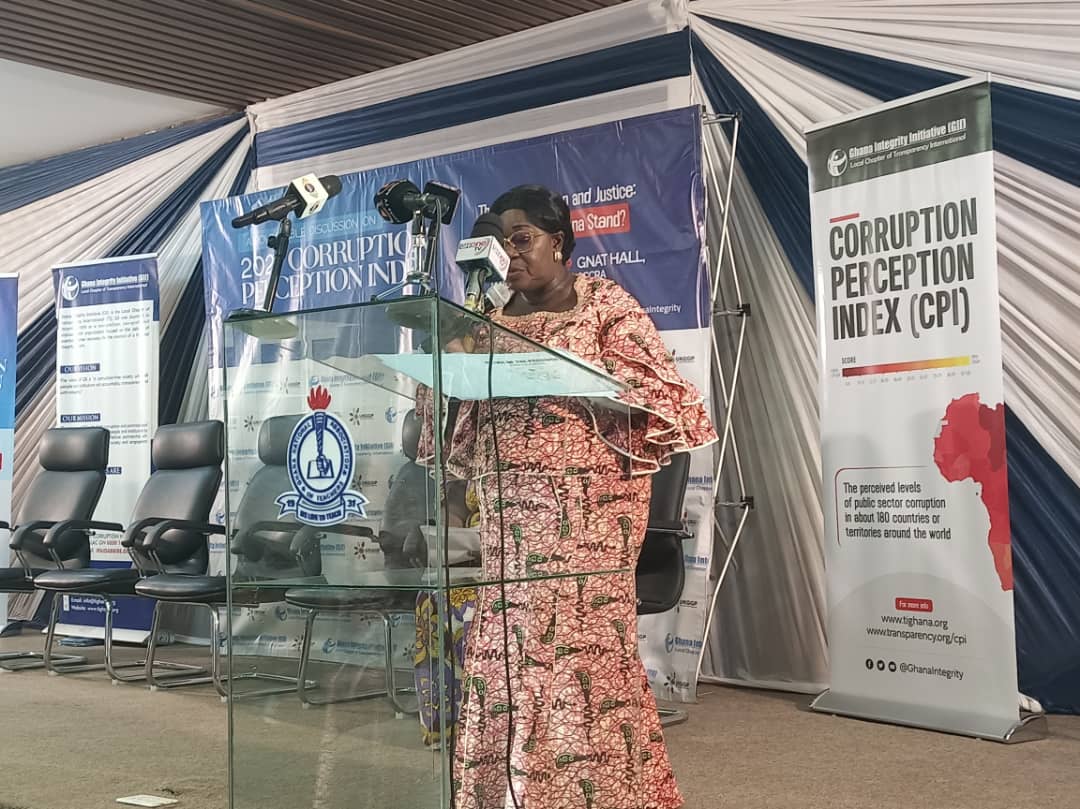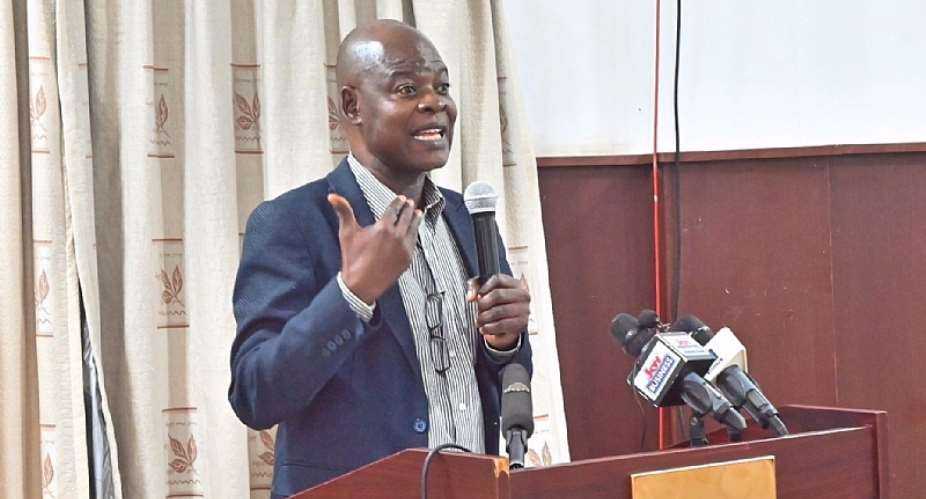
When you drive through Accra, Kumasi, Takoradi, Tamale, or even some of our smaller towns, one common sight accosts the eye: filth.
Piles of refuse by the roadside, clogged gutters spilling into streets, plastic bags swirling in the wind like restless spirits. For too long, this has been the unflattering portrait of our country.
A nation blessed with abundant natural beauty, hardworking people, and rich culture is often reduced, in the eyes of visitors and citizens alike, to the squalor of uncollected rubbish.
This is not simply an aesthetic problem. Filth costs us dearly in health, productivity, tourism, and even national pride. Malaria, cholera, and other preventable diseases thrive in the breeding grounds created by our indiscipline with waste.
Flooding, often worsened by plastic-choked drains, sweeps away lives and livelihoods. Businesses, from the corner shop to the multinational, suffer losses when workers fall ill or when customers shun unsanitary environments.
And yet, amidst this discouraging backdrop, glimmers of hope shine. The Government’s National Sanitation Day initiative, the efforts of grassroots groups like the Bus Stop Boys, and the work of countless volunteers and local leaders have demonstrated that Ghanaians are not indifferent. We care. We act. The challenge is to build on these efforts until they become a sustained, nationwide movement of responsibility and pride.
Sanitation Day: A call to collective duty
When Government declared the first Saturday of every month as National Sanitation Day, it was not merely about cleaning gutters or sweeping streets. It was a call to reawaken our civic responsibility. Too often, we forget that the cleanliness of our communities is not solely the job of waste management companies, assemblies, or the Ministry of Sanitation.
It is our job. Every banana peel thrown onto the roadside, every plastic bottle tossed into the gutter, every bag of household rubbish dumped illegally in a corner is an individual act that accumulates into the national disgrace we all lament.
Sanitation Day offers us a reminder and a structure: one day, set aside regularly, to take stock and take action. But more than that, it offers a mindset shift. If every household, every office, every school, every church, mosque, and market stalls out to clean up their immediate environment, not only once a month but daily, Ghana would quickly transform.
The plastic problem
At the heart of Ghana’s sanitation crisis lies one stubborn culprit: plastic waste, particularly single-use plastics. From sachet water wrappers to shopping bags and straws, plastics dominate our waste streams. Unlike organic waste, which decomposes naturally, plastics remain with us for decades—clogging drains, suffocating soils, polluting rivers, and killing marine life.
The irony is that much of this waste is entirely avoidable. Countries across Africa and the world have taken bold steps—banning plastic bags, taxing single-use packaging, and promoting biodegradable alternatives. Rwanda’s clean streets are testimony to what strong policy and strict enforcement can achieve. Ghana must not shy away from this conversation any longer.
Government needs to show courage in tackling the plastics menace head-on. This means not only regulating and, where necessary, banning single-use plastics, but also incentivising innovation in recycling, waste-to-energy, and eco-friendly packaging. A plastics policy that balances environmental protection with industrial adaptation is long overdue. Without it, every effort at cleaning will remain a Sisyphean task—rolling the boulder of filth uphill, only for it to tumble down again.
The Bus Stop Boys: Civic heroes in overalls
If Sanitation Day is the national call, the Bus Stop Boys are the everyday echo of that call. These young men, often dismissed as dropouts or idlers, have found purpose and dignity in cleaning bus stops, sweeping streets, and encouraging commuters to dispose of their waste properly.
Their initiative deserves far more recognition and support than it currently receives. By their example, they teach us that leadership is not about position but about responsibility. They did not wait for government contracts or donor funds. They picked up brooms and shovels and began. This spirit, if nurtured, can inspire countless others to look around their communities and ask, What can I do right here, right now?
Imagine if every neighbourhood had its equivalent of the Bus Stop Boys—youth groups, church brigades, women’s associations, student clubs—dedicated to keeping their spaces clean. The combined impact would be nothing short of revolutionary.
The price of indifference
We cannot afford to treat sanitation as a secondary issue. Consider the billions of cedis we lose annually to poor sanitation. Health budgets are strained treating preventable diseases. Productivity is sapped as workers miss days of work. Investors and tourists take note of the filth and quietly choose other destinations.
The irony is that the cost of prevention—bins, public education, enforcement of by-laws, organised clean-ups—is far less than the cost of cure. And yet, year after year, we spend more managing the consequences than addressing the causes.
Beyond the economics is the question of national dignity. What does it say about us as a people when we step over rubbish daily and call it normal? When we proudly dress for weddings, funerals, and church services, but leave our own neighbourhoods reeking of refuse? Cleanliness is not just next to godliness; it is next to development.
Shared responsibility: Government, private sector, citizens
True progress requires all hands on deck.
Government must continue to provide leadership, policy direction, and enforcement. Sanitation laws should not gather dust in law books. Assemblies must act firmly against indiscriminate dumping, open defecation, and unlicensed refuse collection. And crucially, the plastics question must be answered with courage and clarity.
The private sector must also step forward. Businesses generate waste and rely on a clean environment to thrive. Sponsorship of bins, trucks, public campaigns, and partnerships with sanitation groups are not acts of charity—they are investments in a healthier economy. Companies that put money into sports and entertainment can surely allocate a fraction to sanitation.
Citizens, too, cannot remain bystanders. It is not enough to blame government or complain on radio. Each of us has a role, however small. Teach your children not to litter. Separate plastics for recycling. Pay your waste collector promptly. Join the next clean-up exercise. Refuse to patronise vendors who sell food in unhygienic conditions. Our collective action—or inaction—writes the story of our environment.
From clean-ups to culture
The ultimate goal is not simply to clean today and dirty tomorrow. The ultimate goal is to build a culture where cleanliness is instinctive, constant, and non-negotiable. In Japan, schoolchildren clean their own classrooms and surroundings daily. In Singapore, littering is met not only with fines but with public disapproval. In Rwanda, Umuganda, a monthly national community work day, has turned Kigali into one of the cleanest cities in Africa.
Ghana can, and must, chart a similar path. Sanitation must become part of our national identity, as ingrained as our love of football, music, and jollof. This culture change will take time, but it begins with consistent effort, good role models, and enforcement that is fair but firm.
Conclusion: Let’s sweep forward together
Sanitation Day is not a government gimmick. The Bus Stop Boys are not mere hustlers with brooms. Together, they represent the seeds of a national renewal. But seeds must be watered, nurtured, and multiplied.
If we truly desire a Ghana that attracts tourists, wins investors, nurtures healthy children, and commands international respect, then we must first win the war against filth. It is a war fought not with guns or bombs, but with brooms, bins, shovels, and above all, discipline.
But let us be clear: until we tackle the mountain of plastic waste, particularly single-use plastics, we will continue to fight with one hand tied behind our back. It is time for bold decisions. Ghana deserves nothing less.
The change we seek will not come by waiting for someone else to act. It will come when each Ghanaian, from President to pupil, from banker to bus conductor, says: Cleanliness begins with me.
Let us not grow weary. Let us not surrender to the filth. Instead, let us pick up our brooms, roll up our sleeves, and sweep forward—together.
The post Reflections by S.M.A: Sweeping Change: Why we must all join the fight against filth appeared first on The Business & Financial Times.
Read Full Story




















Facebook
Twitter
Pinterest
Instagram
Google+
YouTube
LinkedIn
RSS